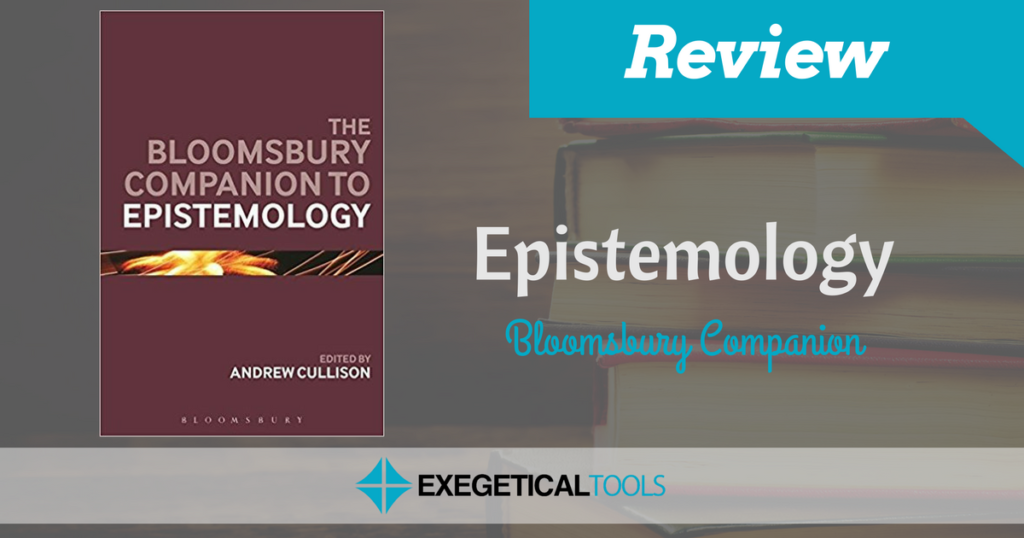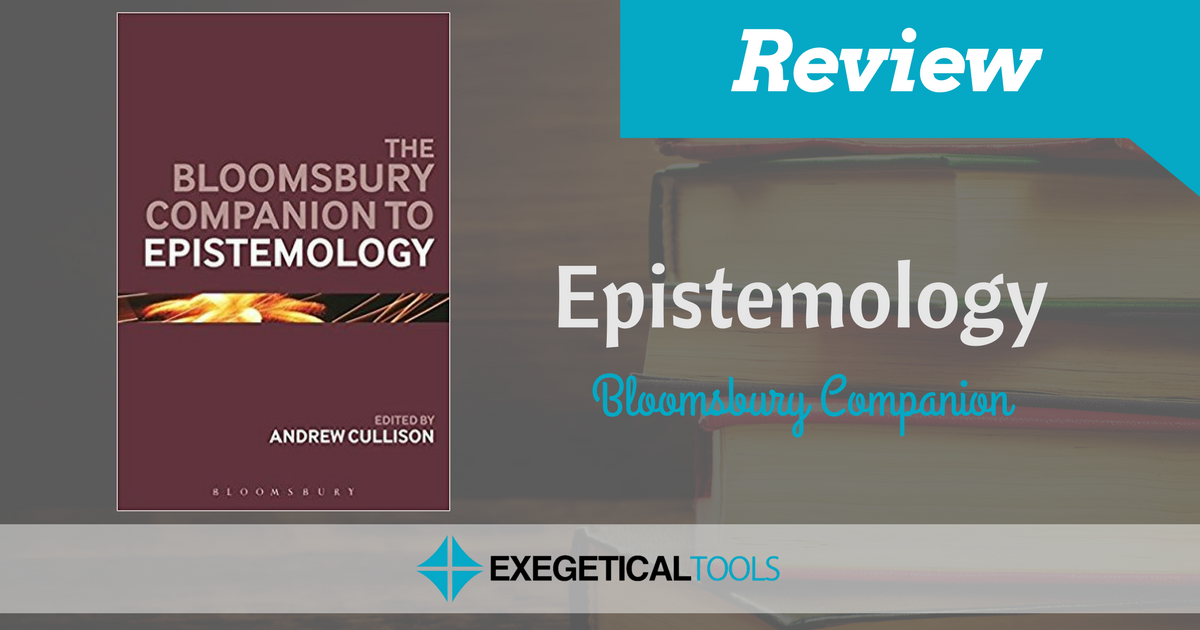
The Bloomsbury Companion to Epistemology, ed. Cullison (Bloomsbury, 2015), 389 pp.
Along with metaphysics, epistemology is one of the most important philosophical topics, and it’s important for those in all kinds of fields. While metaphysics is properly “first philosophy,” since all else depends on it (Descartes notwithstanding!), epistemology is utilized in fields such as science, historiography, theology, and more. A basic understanding of the main lines of thought will therefore serve researchers as they seek to be methodologically sophisticated.
This companion contains fifteen chapters covering various positions and concepts in the field of epistemology. The introductory essay by the editor is useful, but a bit of a let down as it’s titled “A brief historical overview and some puzzles about methodology.” The historical overview starts with a mention of Locke and moves forward to the mid-twentieth century very quickly. Companions such as these should really cover the foundations of the discipline, which start in ancient Greece (e..g, Plato’s Theaetetus). Nevertheless, the chapter does give a useful twenty-page overview of issues in epistemology.
The volume represents well the various positions available in epistemology, including internalist positions such as foundationalism (ch. 2), coherentism (ch. 3), evidentialism (ch. 5), and externalist positions such as reliabliism (ch. 6) and proper functionalism (ch. 7). Concepts are also covered in-depth, such as a prori knowledge (ch. 10), formal and experimental epistmology (chs. 12-13), epistemic value (ch. 14), and more.
The back of the volume includes indices similar to the metaphysics volume, including a glossary of terms, a list of research resources, and a bibliography. The research resource appendix lists various articles on epistemology in the Internet Encyclopedia of Philosophy and the Stanford Encyclopedia of Philosophy, all available for free online. If the reader did not know about these already, bookmark them (I actually only knew about the latter, which is fantastic).
Like the Bloomsbury Companion to Metaphysics, this volume would be profitably read cover to cover. Such a quality is rare in companions and guides, which often contain some helpful chapters and others that would only be useful to a very specialized researcher. Each of these chapters are broad enough and are at the survey-level, which enables the reader to gain much knowledge about the field in under 350 pages of reading. The authors are also valuable representatives of their respective positions.
Although each chapter contains endnotes (one of the banes of reading), one may profitably consult the endnotes for further resources on a topic. An appendix with an annotated bibliography per topic or something of the like would have been a welcome addition, but one will have to make due with the endnotes.
In sum, this volume is a useful addition to anyone’s library and would contribute well to one’s understanding of philosophy, epistemology, and the pursuit of an informed methodology for any field involving knowledge (which is, of course, every field).
Buy it here on Amazon.

